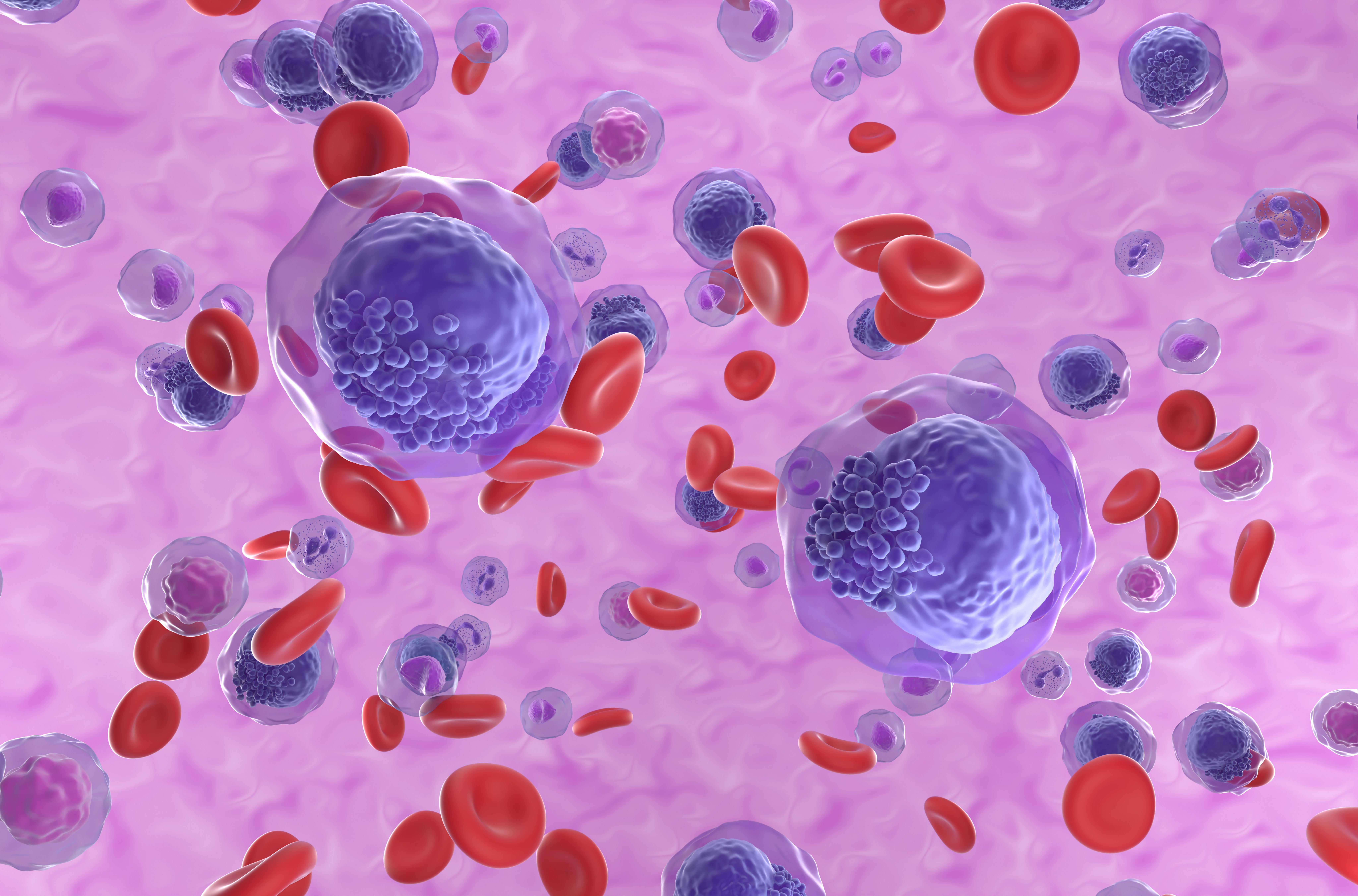LYT-200 Gains FDA Fast Track Status in Acute Myeloid Leukemia
LYT-200 now has gained fast track designation from the FDA in acute myeloid leukemia in addition to its prior designation for recurrent or metastatic head and neck squamous cell carcinoma.

- The FDA has granted fast track designation to LYT-200 for the treatment of acute myeloid leukemia (AML).
- LYT-200 is a first-in-class anti–galectin-9 monoclonal antibody.
- Two phase 1/2 studies are currently evaluating LYT-200 for the potential treatment of patients with AML, myelodysplastic syndrome (MDS), and head and neck cancers.
The FDA has granted LYT-200, a first-in-class anti-galectin-9 monoclonal antibody, fast track designation for the potential treatment of patients with AML.1
"Fast track designation from the FDA reinforces our belief in the potential for LYT-200 to address the urgent needs of AML patients," said Luba Greenwood, JD, entrepreneur-in-residence at PureTech who is leading the Gallop Oncology work, in a press release. "This milestone builds on the FDA's recognition of LYT-200's promise, including orphan drug designation for AML and a second fast track designation for head and neck cancers, both of which were granted last year.”
LYT-200 is currently being evaluated in 2 ongoing clinical trials. The first is a phase 1/2 trial (NCT05829226) assessing LYT-200 given alone and in combination with venetoclax (Venclexta) and hypomethylating agents (HMA) in patients with a variety of hematological malignancies, including AML and high-risk MDS.
Patients in the monotherapy arm received LYT-200 at 5 dose levels (2.0 mg/kg to 16.0 mg/kg). Those in the combination arm received LYT-200 across 3 dose levels (4.0 mg/kg to 12.0 mg/kg) with venetoclax/HMA.2
Findings from this trial were presented at the 2024 American Society of Hematology (ASH) Annual Meeting, showing that LYT-200 had a favorable safety and tolerability profile in this patient population. These results were observed across both arms and across all dose levels evaluated. Further, there were no dose-limiting toxicities observed.
There was also evidence of response, hematological improvement, and sustained disease management with LYT-200, and early signals of clinical activity were seen with LYT-200 when given as a single agent and in combination.
Acute myeloid leukemia (AML) cells: © LASZLO - stock.adobe.com

In the second study, another phase 1/2 trial (NCT04666688), investigators are evaluating LYT-200 as a monotherapy and in combination with tislelizumab (Tevimbra), an anti–PD-1 antibody, in patients with advanced/metastatic solid tumors, including head and neck cancers.3
Part 1 of the study is a dose escalation of single-agent LYT-200, followed by dose expansion of LYT-200 plus gemcitabine/nab-paclitaxel or tislelizumab. Part 2 of the study is a combination dose expansion based on outcomes from part 1.
The study’s primary end points are safety, tolerability, and preliminary efficacy. Secondary end points include pharmacokinetics and pharmacodynamics.
Findings have already shown LYT-200 to have a favorable safety profile in all cohorts. The agent has also shown disease control and indications of initial antitumor activity in the trial.1
“By targeting galectin-9, a key driver of cancer proliferation and immune suppression, LYT-200 represents a novel and promising approach for patients in need, and we look forward to the continued development of this program," added Greenwood in the press release.
In addition to this fast track designation, the FDA granted an orphan drug designation to LYT-200 in AML in March 2024, and another fast track designation to LYT-200 plus anti-PD-1 therapy for the treatment of recurrent or metastatic head and neck squamous cell carcinoma (HNSCC) in April 2024.
REFERENCES:
PureTech receives FDA fast track designation for LYT-200 in acute myeloid leukemia (AML). News release. PureTech Health plc. January 9, 2025. Accessed January 13, 2025. https://tinyurl.com/25vswybn
PureTech presents data for LYT-200 (anti-galectin-9 monoclonal antibody) for relapsed/refractory AML/MDS at the 2024 ASH Annual Meeting. News release. PureTech Health plc. December 9, 2024. Accessed January 13, 2025. https://tinyurl.com/4pucntvn
PureTech receives FDA fast track designation for LYT-200 in head and neck cancers. News release. April 11, 2024. Accessed January 13, 2024. https://tinyurl.com/4bum5hkk








